Call Us : 08045816053
Precipitated Barium Sulphate
Price 60 INR/ Kilograms
MOQ : 25 Kilograms
Precipitated Barium Sulphate Specification
- Solubility
- Insoluble in water
- Poisonous
- Yes
- Form
- Powder
- Storage
- Room Temperature
- Application
- Pharmaceutical, Paints
Precipitated Barium Sulphate Trade Information
- Minimum Order Quantity
- 25 Kilograms
- Payment Terms
- Cash in Advance (CID)
- Supply Ability
- 100 Kilograms Per Day
- Delivery Time
- 7 Days
- Sample Available
- Yes
- Sample Policy
- Free samples are available
- Packaging Details
- Plastic Bags / Paper Bags
- Main Export Market(s)
- Asia, Australia, North America, Eastern Europe, Middle East, South America, Africa, Central America, Western Europe
- Certifications
- ISO 9001:2008
About Precipitated Barium Sulphate
We are one of the noted suppliers of Precipitated Barium Sulphate for our highly reputed clients. It is developed at our vendors unit in accordance with the predefined industry procedures, making use of best quality chemical components and machinery. This chemical compound is accepted for its precise chemical composition and effectiveness as tested by our professionals on various parameters before dispatching. It is available in tamper proof packaging in order to prevent chemicals. We offer this at highly pocket friendly prices in the market.
Precipitated Barium Sulphate Applications:
1. Precipitated barium sulfate, also known as blanc fixe, is a white crystalline powder that is widely used in various industries due to its unique properties. Here are some of the main applications of precipitated barium sulfate:
2. Pharmaceuticals: Precipitated barium sulfate is commonly used as a contrast agent in X-ray imaging studies. It is used to enhance the visibility of the gastrointestinal tract during fluoroscopy or radiography procedures. The high atomic number of barium allows for better absorption of X-rays, making it useful in medical diagnostics.
3. Paints and Coatings: Precipitated barium sulfate is used as a filler in the production of paints, coatings, and pigments. It improves the opacity, brightness, and whiteness of the finished products. It also enhances the paints resistance to weathering, UV radiation, and corrosion.
4. Plastics and Rubber: In the plastics and rubber industries, precipitated barium sulfate is used as a filler and reinforcing agent. It helps improve the mechanical properties, such as stiffness and impact resistance, of these materials. Additionally, it can enhance the heat resistance and dimensional stability of plastics and rubber.
5. Paper and Packaging: Precipitated barium sulfate is added to paper and paperboard to improve their brightness and opacity. It helps achieve a higher quality, brighter appearance for products like printing and writing papers, photographic papers, and packaging materials. The addition of barium sulfate also enhances the papers printability and ink adhesion.
6. Ceramics and Glass: In the ceramics and glass industries, precipitated barium sulfate is used as a flux to reduce the melting temperature of glass and ceramics. It can improve the thermal stability, mechanical strength, and chemical resistance of these materials.
7. Construction Materials: Precipitated barium sulfate is used in the production of construction materials such as concrete, mor tar, and plaster. It acts as a filler, improving the density and strength of these materials. It can also enhance their resistance to chemicals and weathering.
8. Adhesives and Sealants: Precipitated barium sulfate is added to adhesives and sealants to improve their viscosity, thixotropy, and stability. It helps prevent settling of solid particles and provides better control over the flow properties of these products.
9. Battery Manufacturing: Barium sulfate is used in the production of certain types of batteries, including lead-acid batteries. It is added to the battery plates to increase their electrical conductivity and improve the overall performance and lifespan of the battery.
Precipitated Barium Sulphate Specifications:
The specifications of precipitated barium sulfate can vary depending on the manufacturer and intended application. However, here are some common specifications for precipitated barium sulfate:
- Chemical Formula: BaSO4
- Molecular Weight: 233.39 g/mol
- Appearance: White, fine powder
- Density: 4.50 g/cm3
- Melting Point: 1,580 degree centigrade
- Solubility: Insoluble in water and organic solvents
Particle Size Distribution:
- Median Particle Size: Typically in the range of 1 to 10 microns
- D50 (50% particle size): Varies depending on the desired application, commonly between 2 to 5 microns
- Brightness (Hunter L Value): Typically greater than 97
- Oil Absorption: Typically around 10-15 g/100g
- pH Value: Neutral to slightly acidic (around 6-8)
Chemical Purity:
- Barium Sulfate (BaSO4) Content: Typically greater than 98%
- Calcium (Ca) Content: Generally less than 0.2%
- Iron (Fe) Content: Generally less than 0.01%
- Heavy Metal Content: Generally less than 0.005%
- Moisture Content: Typically less than 0.2%
Frequently Asked Questions:
Q: What is precipitated barium sulfate?
A: Precipitated barium sulfate, also known as blanc fixe, is a white crystalline powder that is produced by the precipitation reaction of barium salts with sulfate ions. It has a wide range of applications due to its high density, chemical inertness, and white color.
Q: How is precipitated barium sulfate manufactured?
A: Precipitated barium sulfate is typically manufactured through a chemical precipitation process. Barium salts, such as barium chloride or barium nitrate, are reacted with a source of sulfate ions, often sodium sulfate or sulfuric acid, under controlled conditions. This reaction leads to the formation of barium sulfate as a fine precipitate, which is then collected, washed, dried, and milled into the desired particle size.
Q: What are the main uses of precipitated barium sulfate?
A: Precipitated barium sulfate has various applications across industries. It is commonly used as a contrast agent in medical imaging (X-ray) procedures, a filler and pigment in paints and coatings, a reinforcing agent in plastics and rubber, a brightness enhancer in paper and packaging materials, a flux in ceramics and glass manufacturing, and an additive in adhesives, sealants, and construction materials. It is also used in battery manufacturing and other specialized applications.
Q: What are the advantages of using precipitated barium sulfate in paints and coatings?
A: Precipitated barium sulfate offers several advantages in the paints and coatings industry. It improves the opacity and brightness of coatings, enhances their resistance to weathering and UV radiation, and provides better corrosion protection. It also helps to control the rheological properties of the paint, such as viscosity and flow behavior.
Q: Is precipitated barium sulfate toxic?
A: Precipitated barium sulfate is considered relatively non-toxic. It is insoluble in water and has low bioavailability, which means it is not easily absorbed by the body. However, like any fine particulate material, inhalation of large amounts of barium sulfate dust should be avoided, as it may cause respiratory irritation. It is important to follow proper safety precautions and handling procedures when working with any powdered substance.
Q: Can precipitated barium sulfate be used in food applications?
A: No, precipitated barium sulfate is not approved for direct use in food applications. While it is considered non-toxic, it is not intended for ingestion. Barium compounds, including barium sulfate, can be harmful if ingested in large quantities. Therefore, it is essential to use food-grade additives and adhere to regulatory guidelines for any materials used in food applications.
Q: Can precipitated barium sulfate be used in cosmetics?
A: Yes, precipitated barium sulfate is used in some cosmetics and personal care products, such as foundations, powders, and creams, to enhance opacity and coverage. However, it is important to note that specific regulations and restrictions may apply to the use of barium sulfate in cosmetics, and compliance with safety standards and guidelines is necessary.
FAQs of Precipitated Barium Sulphate:
Q: What is Precipitated Barium Sulphate?
A: Precipitated Barium Sulphate is a powder form chemical used in pharmaceuticals and paints.Q: What are the applications of Precipitated Barium Sulphate?
A: Precipitated Barium Sulphate is mainly used in pharmaceuticals and paints.Q: Is Precipitated Barium Sulphate soluble in water?
A: No, Precipitated Barium Sulphate is insoluble in water.Q: How should I store Precipitated Barium Sulphate?
A: You should store Precipitated Barium Sulphate at room temperature.Q: Can I use Precipitated Barium Sulphate for other purposes?
A: Precipitated Barium Sulphate is specifically made for pharmaceuticals and paints, and should not be used for other purposes.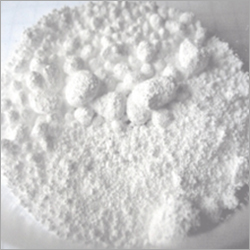
Tell us about your requirement

Price:
Quantity
Select Unit
- 50
- 100
- 200
- 250
- 500
- 1000+
Additional detail
Mobile number
Email
More Products in Barium Sulphate Category
Barium Sulfate Powder
Price 40 INR / Kilograms
Minimum Order Quantity : 25 Kilograms
Grade : Industrial Grade
Storage : Room Temperature
Form : Powder
Synthetic Barium Sulphate
Price 40 INR / Kilograms
Minimum Order Quantity : 25 Kilograms
Grade : Industrial Grade
Storage : Room Temperature
Form : Powder
Usage : It is used to help doctors examine the esophagus (tube that connects the mouth and stomach), stomach, and intestine using xrays or computed tomography.
Blanc Fixe Barium Sulphate
Price 60 INR / Kilograms
Minimum Order Quantity : 25 Kilograms
Grade : Industrial Grade
Storage : Room Temperature
Form : Other, Granules
Usage : Industrial

 Send Inquiry
Send Inquiry
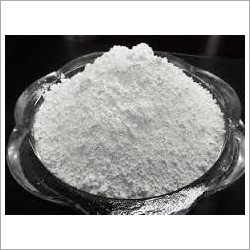
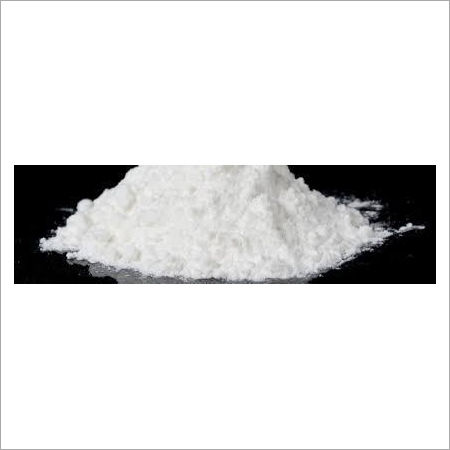
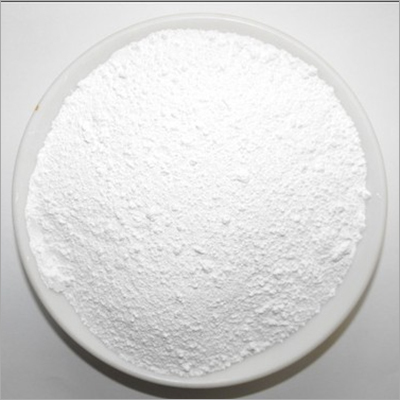
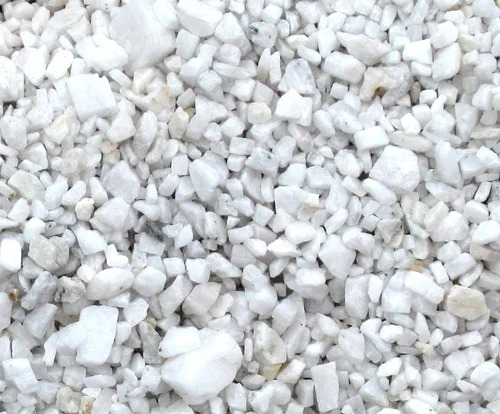
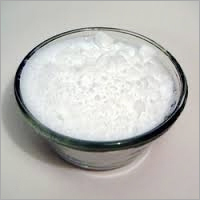

 English
English Spanish
Spanish French
French German
German Italian
Italian Chinese (Simplified)
Chinese (Simplified) Japanese
Japanese Korean
Korean Arabic
Arabic Portuguese
Portuguese